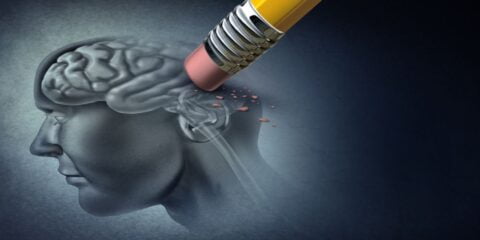Ever forget where you placed your keys, struggle to recall a name, or feel overwhelmed with daily tasks? These experiences, while common, can sometimes indicate underlying cognitive issues. But what if there were ways to assess your brain function and proactively improve your mental health? Enter cognitive brain function tests.
This article dives deep into the fascinating world of cognitive assessments, exploring how they can empower you to understand your mind, identify potential concerns, and ultimately, enhance your mental well-being.
The Mind-Body Connection: How Cognition Affects Mental Health
Our brains are the intricate control centers for everything we do, from thinking and remembering to feeling emotions and managing stress. Cognition, the term encompassing these mental processes, plays a crucial role in mental health. Deficits in memory, attention, or problem-solving can significantly impact our emotional state, leading to anxiety, depression, and frustration.
Cognitive tests and assessments act as a window into our mental well-being, offering valuable insights into how our brains function.
What Happens During Cognitive Tests?
Cognitive assessments are a series of tests designed to evaluate different aspects of brain function. These may include tasks that assess:
- Memory recall: How well you remember information after a short period.
- Language abilities: Your fluency in expressing yourself and understanding language.
- Problem-solving skills: Your ability to analyze situations and develop solutions.
The results provide a comprehensive picture of your cognitive strengths and weaknesses, allowing healthcare professionals to identify any potential areas of concern.
There are different types of cognitive assessments, each serving a specific purpose:
- Cognitive Impairment Test: Evaluates the presence and extent of cognitive decline, aiding in diagnosis and treatment planning.
- Cognitive Ability Test: Assesses various mental functions, providing a broad overview of your cognitive strengths and weaknesses.
- Baseline Cognitive Assessment: Establishes a reference point for your cognitive function at a specific time, allowing for future comparisons and tracking any changes.
- Cognitive Test for Dementia: Designed to detect early signs of dementia, such as Alzheimer’s disease, by evaluating memory, language, and executive function.

Brain Training Games: Fact or Fiction?
Brain training games have become increasingly popular as a way to enhance cognitive function. While research suggests these games can improve specific cognitive skills, especially with personalized approaches and regular practice, the long-term impact on overall brain health remains under investigation.
Common Cognitive Assessment Tools
Mini-Mental State Examination (MMSE): A widely used tool that assesses orientation, attention, memory, and language through simple tasks and questions. The MMSE is a quick and easy screening tool, but it may not be sensitive enough to detect mild cognitive decline. It’s important to note that performance on the MMSE can also be affected by factors like education level and fatigue.
Clock Drawing Test: A simple yet effective test where patients draw a clock face with specific hands. Difficulties in drawing can indicate problems with spatial and executive functions, often early signs of dementia. A poorly drawn clock can also be a sign of neglect, so a healthcare professional will consider this in the context of other assessments. The clock drawing test is a valuable tool, but it should not be used in isolation. A healthcare professional will likely use a combination of assessments to get a more complete picture of cognitive function.
Should I get Cognitive Testing Done?
If you’re experiencing memory lapses, difficulty concentrating, or other cognitive concerns, a cognitive assessment can be beneficial. Early detection of cognitive decline allows for timely interventions and better management of potential underlying conditions. Consulting with a doctor about your concerns is crucial, and they can determine if a cognitive assessment is right for you. Don’t hesitate to speak to a NeuroCouncellor.
Ivory’s Cognitive Health Checkup detects modifiable risk factors that helps minimize cognitive decline. It is recommended for everyone above 40.
What Does Neuropsychological Testing Reveal?
Neuropsychological testing offers a more in-depth analysis of various cognitive domains, including memory, attention, language, and problem-solving. These tests can help diagnose conditions such as ADHD, learning disabilities, and brain injuries, providing a detailed picture of your cognitive strengths and weaknesses. Neuropsychological testing is often more comprehensive than cognitive assessments and may involve a battery of tests administered by a licensed neuropsychologist. While cognitive assessments can be a good starting point, neuropsychological testing offers a deeper dive into your cognitive functioning. This detailed analysis can be instrumental in creating personalised treatment plans and interventions.
The Power of Cognition for a Healthy Mind
Healthy cognitive function is the foundation for navigating daily life effectively. It allows us to perform tasks, make decisions, and maintain independence. Cognitive assessments play a vital role in safeguarding mental health by identifying potential issues and paving the way for proactive interventions. By taking care of your cognitive health, you’re investing in your overall well-being and quality of life. Think of your brain like any other essential organ in your body. It needs care and attention to function at its best. By incorporating brain-healthy habits and considering cognitive assessments, you can empower your mind and promote mental well-being for years to come.
What Are The Benefits of Cognitive Assessments?
Cognitive tests offer numerous advantages:
- Early Detection: They can identify early signs of cognitive decline, allowing for timely intervention and treatment.
- Monitoring Changes: Tracking cognitive performance over time helps healthcare professionals monitor changes in brain function.
- Guiding Treatment Plans: Assessment results provide valuable insights for creating personalized treatment plans and therapies.
By identifying your cognitive strengths and weaknesses, these assessments serve as a roadmap for improving your cognitive health and, consequently, your mental well-being.
How Cognitive Function Benefits Mental Health
Imagine your brain as a magnificent orchestra. Each cognitive function, like memory, attention, and problem-solving, acts as a skilled musician playing their instrument. When all these functions work together in harmony, you experience a symphony of mental well-being.
Healthy cognitive function allows you to:
- Communicate effectively: You can clearly express your thoughts and ideas, fostering strong relationships and navigating social situations with ease.
- Solve problems efficiently: You can analyze challenges, develop effective strategies, and overcome obstacles, leading to a sense of accomplishment and reduced stress.
- Live independently: You can manage daily tasks, make informed decisions, and maintain control over your life, fostering feelings of confidence and self-sufficiency.
But just like an orchestra facing a missed note or a clashing cymbal, disruptions in cognitive function can significantly impact mental health. Deficits in memory, attention, or problem-solving can lead to:
- Frustration and anxiety: Difficulty recalling information or completing tasks can be a source of frustration, potentially triggering anxiety symptoms.
- Social isolation: Challenges with communication or social interaction can lead to withdrawal and feelings of isolation, impacting mental well-being.
- Depression: The inability to manage daily life effectively can contribute to feelings of helplessness and hopelessness, which are hallmarks of depression.
By understanding the intricate connection between cognitive function and mental health, you can take proactive steps to nurture your brain’s symphony and promote overall well-being.
From Childhood to Adulthood: The Lasting Impact of Cognitive Development
Cognitive development during childhood and adolescence isn’t just about learning your ABCs or mastering algebra equations. It’s about laying the foundation for lifelong mental health. Just like building a strong house requires a solid foundation, healthy cognitive development sets the stage for future mental well-being.
Here’s how proper cognitive development supports mental health:
- Academic success: Strong cognitive skills like memory and attention contribute to academic achievement, fostering a sense of accomplishment and self-esteem.
- Healthy social interactions: Developed communication skills and emotional regulation allow for positive social interactions, building strong relationships and reducing loneliness.
- Emotional regulation: As children learn to manage their emotions effectively, they develop resilience against future challenges, reducing the risk of mental health issues later in life.
By nurturing a child’s cognitive development through play, educational activities, and a supportive environment, we empower the next generation to build a strong foundation for lifelong mental well-being.
What Is the Purpose of the Cognitive Tests?
The cognitive performance test evaluates an individual’s ability to perform daily activities and manage practical tasks. It is often used in occupational therapy to assess the impact of cognitive impairments on everyday functioning. This can be particularly helpful for individuals who have experienced a stroke, brain injury, or are living with a progressive condition like dementia. The test results can then be used to:
- Develop personalized interventions: Occupational therapists can design targeted strategies and techniques to help individuals regain independence and improve their ability to complete daily tasks.
- Monitor progress over time: By comparing cognitive performance test results at regular intervals, healthcare professionals can track changes in an individual’s cognitive abilities and adjust treatment plans accordingly.
- Identify areas for support: The test can highlight specific areas of difficulty, such as managing finances or preparing meals. This information helps occupational therapists and other healthcare providers recommend appropriate support services or assistive devices.

What Are the Advantages of Cognitive Thinking?
Cognitive thinking involves logical reasoning, problem-solving, and decision-making. These skills enable individuals to navigate complex situations, solve problems efficiently, and make informed decisions, all of which are crucial for mental health. Here’s how strong cognitive thinking benefits mental well-being:
- Reduces stress and anxiety: When you can think clearly and analyze situations effectively, you’re better equipped to handle challenges and feel more in control, leading to reduced stress and anxiety.
- Boosts self-confidence: Successfully navigating complex tasks and making sound decisions fosters a sense of accomplishment and self-confidence, contributing to overall well-being.
- Enhances emotional regulation: Cognitive thinking skills allow you to process emotions rationally and develop coping mechanisms for dealing with difficult situations, promoting emotional stability.
What Is the Best Way for You to Improve Your Brain Function?
The good news is that brain function is not fixed! Here are some of the best ways to improve your brain function and promote cognitive health:
- Regular physical exercise: Physical activity increases blood flow to the brain, promoting the growth of new brain cells and enhancing cognitive function. Aim for at least 30 minutes of moderate-intensity exercise most days of the week.
- Brain-healthy diet: Nourish your brain with a balanced diet rich in fruits, vegetables, whole grains, and healthy fats like omega-3s found in fatty fish. These nutrients provide essential building blocks for brain cells and support cognitive function.
- Quality sleep: During sleep, your brain consolidates memories, processes information, and removes waste products. Aim for 7-8 hours of quality sleep each night to optimize cognitive function.
- Mentally stimulating activities: Challenge your brain with activities that promote learning and new experiences. This could include puzzles, reading, learning a new language, or playing a musical instrument.
- Social engagement: Regularly interacting with others keeps your mind sharp and provides social support, which is essential for mental well-being.
What Is the Objective of Cognitive tests?
The primary objective of cognitive assessment testing is to identify cognitive strengths and weaknesses, diagnose conditions, and monitor changes over time. This information is vital for creating effective treatment plans and interventions.
Here’s a breakdown of the objectives:
- Identify cognitive strengths and weaknesses: By understanding your cognitive profile, healthcare professionals can determine areas that function well and areas that may need support.
- Diagnose conditions: Cognitive assessments can be used to help diagnose various conditions that affect cognitive function, such as dementia, ADHD, or learning disabilities.
- Monitor changes over time: Regularly administered cognitive assessments can help track changes in cognitive function over time. This is particularly important for monitoring the progression of cognitive decline or the effectiveness of treatment interventions.
Why Are Cognitive Skills Beneficial?
Strong cognitive skills are beneficial in a multitude of ways:
- Academic and professional success: Well-developed cognitive skills like memory, attention, and problem-solving are essential for academic achievement and professional success.
- Enhanced social interactions: Strong communication skills and the ability to understand social cues contribute to positive social interactions and foster meaningful relationships.
- Improved quality of life: Cognitive skills allow you to navigate daily life effectively, make informed decisions, and participate in activities you enjoy, all of which contribute to a higher quality of life.
- Resilience against mental health challenges: Strong cognitive skills can help you cope with stress, manage difficult emotions, and adapt to challenging situations, reducing the risk of developing mental health issues.
By understanding the importance of cognitive function and taking steps to improve and maintain it, you can empower yourself to live a mentally healthy and fulfilling life.
Also read: Eidetic memory: Extraordinary ways our brain remembers
Frequently Asked Questions
Early signs can be subtle and might include forgetting recent events more often, struggling with familiar tasks, or feeling more confused than usual. Talk to your doctor if you’re concerned.
This depends on your age and health. There’s no one-size-fits-all answer. Ivory’s NeuroCounsellor can advise you.
Absolutely! Exercise, a healthy diet, quality sleep, and mentally stimulating activities can all boost brain health.
A balanced diet rich in fruits, vegetables, whole grains, and healthy fats like omega-3s nourishes your brain and supports cognitive function.
Coverage varies depending on your insurance plan. It’s best to check with your provider beforehand.
These tests are a valuable tool, but they’re not perfect. A doctor will consider them alongside other factors for a complete picture.
Regular exercise, brain-stimulating activities like puzzles or learning a new skill, and getting enough sleep are all excellent natural ways to boost brainpower.
Chronic stress can negatively impact memory, focus, and overall cognitive function. Managing stress through relaxation techniques is crucial.
While they can identify cognitive issues, they don’t diagnose specific mental health disorders. However, they can be a helpful piece of the puzzle.
Anything that keeps your mind sharp and learning! Puzzles, reading, social interaction, and even playing a musical instrument can all benefit your brain.




